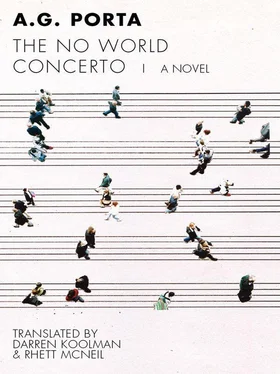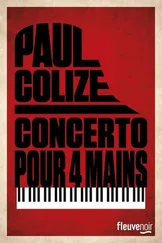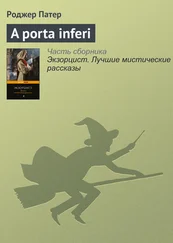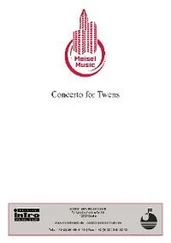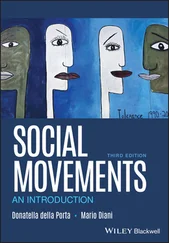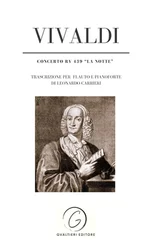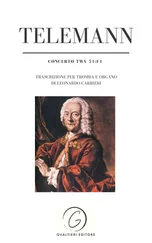She prepared her question carefully: concealed the question mark, transformed it into something subtler. Her father’s busy putting his papers in order. She watches him, mentions she saw Cousin Dedalus in the crowd. He seems too distracted to notice she even said anything. So she just silently watches as he puts certain documents in order, perhaps the same documents she saw before: photographs and reports from the space agency relating to sightings of aliens and flying saucers. He holds up an old black and white snapshot of the scientist and some other people. He flips it over, sees “1st Hunter Brigade” clearly written on the back. He then puts it among some other photographs, as if the title had revealed to him its proper classification. Although she’s a little nervous, the girl feigns a lack of interest in what he’s doing, and keeps talking about her cousin. Don’t you think it’s extraordinary I keep bumping into him? Her father asks her how she could’ve picked him out in the shadows of the dimly lit church, and from so far away too. She doesn’t tell him about her sixth sense, that she’s also detected him under similar circumstances. Her father continues working away, not paying much attention to her, so she turns to her diary. She plans to go snooping through his papers later on. Why didn’t she do it earlier when she had the chance? The timing wasn’t right. She grabs the newspaper and continues scouring through the articles. She’s suddenly developed a great interest in the neighboring country’s newspapers. She always reads the one she buys her father every morning in the lobby downstairs, and others she might see in any bars, cafés, or restaurants she happens to come across. Indeed, whatever else she might be doing, whether it’s sitting down to eat or drink, taking notes for her novel, or simply relaxing, she always has a newspaper at hand. Her father wants to know why she doesn’t buy all the newspapers together at the kiosk and stop all the running around. She doesn’t answer but instead asks her own question, trying her best to conceal the question mark: Dad, what if all the churches and cathedrals were really centers for transmitting and receiving messages to and from space? Her father doesn’t think it’s a bad idea. She might be able to use it in her novel. The girl returns to the newspaper. She’s looking for some news on the scientist. She has a bad feeling any news will be a confirmation of his death. But there’s nothing about the scientist in today’s papers. So the girl decides to go out and lock herself inside the rehearsal booth with the young conductor’s latest conquest and help her with some of the pieces she’s having trouble with; in fact, the very same pieces the girl performs as a clown. Afterward, back in the hotel, she continues her story about the female student, although it’s not really her story at all, but that of the old professor of philosophy, the alien hunter who hasn’t even got a license to hunt. The female student only represents an idea, albeit the main idea of the story. “2.221 What the no picture represents is its sense. The female student walks breezily along the street, unaware that the young guy she cold-shouldered back in class is following her, a potential witness of her assignation with the professor.” The girl looks up from the computer screen. She catches her father watching her. But he quickly lowers his eyes to the newspaper. Who knows what’s going on in his head? “2.222 The agreement or disagreement of its sense with reality constitutes its truth or falsity. After some time has elapsed — perhaps only a few hours or so, because the female student’s classmate isn’t a dolt, and was quick to figure out what was going on — the professor’s wife receives an anonymous phone call. She hangs up, and sits down slowly — as if sinking, but hesitatingly — into an armchair, her expression transitioning as she sits, becoming forlorn; her open eyes letting fall two tears, unsynchronized, which run unevenly down her cheeks. It’s not the first time her husband’s cheated on her. He’s been having affairs with women almost from the day they were married. Some were even close acquaintances. She wasn’t expecting him to change. At his age, most people have learned to rein in their desires, to control their rage, moderate their passions, but with him, it seems, old habits die hard. It seems he’s entered a strange phase in life, a desperate clinging onto what he imagines is slipping away — his youth, his vitality, his sexuality — and he overcompensates for the growing lack instead of rationing what’s left, like most people. It’s as if he believes it’s his last winter, and wants to burn down the storehouse to experience a final day of summer. Now that she thinks about it, he’s been acting strangely the past few months. But, then again, perhaps she’s only thinking this because she’s jealous. Maybe he’s had enough of her. It could be as simple as that. Even so, for the woman, it’s nothing new. What really disturbs her is the fact he’s having a relationship with a minor: a student of the Academy. She doesn’t know why, but she thinks there’s something different about this one, despite the fact she’s so young. She’s probably not even the first teenager he’s had. Maybe she’s thinking as a mother would, imagining what she’d do if she discovered her daughter was having an affair with an older man — a much older man; a retired much older man who gives classes to supplement his pension.” When her father finally goes out, the girl searches the hotel room for his documents. The room isn’t very big, so it doesn’t take her long to realize her father took them with him. She can’t even begin to guess where he might have gone, or why he took the documents. She should’ve paid more attention. All she can do is lament another lost opportunity and return resignedly to her writing. Her vocation should preclude her being distracted by what goes on around her anyway. She considers the old professor’s wife. “There’s no doubt about it. What the anonymous voice just told her is the truth. But she hasn’t decided what to do about it, so she’s going to keep quiet. She won’t even mention a word about it. 2.224 It is impossible to tell from the picture alone whether it is true or false. When the old professor finally gets home, he finds his wife taciturn, so he suspects something isn’t right. She gives the excuse that she has a terrible headache. Later, in the kitchen, he resolves to break the silence by asking about her day.” The elevator stops on the landing, and she hears the sound of McGregor’s footsteps approaching in the corridor — slowing, hesitating as they pass the girl’s door, before receding as they proceed toward his room. The girl listens as he secures the latch of his door, thinking about their inevitable meeting, a man with whom she’s only ever exchanged a few words on the telephone. But she won’t leave anything to chance. She’s already let too many opportunities slip through her fingers, so she intends to plan the meeting exactly. She’ll interrogate him about the cathedrals, railway stations, and airports. The idea of using cathedrals as meeting points isn’t a bad one, but there wouldn’t be any privacy. The young conductor thinks if aliens really are among us, maybe she should try arranging a meeting by putting an ad in a newspaper. She returns to her writing. She needs to persist if she’s to continue making progress. She still has to consolidate the relationship between the female student and old professor — two beings from another galaxy. They must come from another galaxy. It wouldn’t make sense if this wasn’t the case.
At night, there are scarcely any tables available, but the screenwriter scours the café terrace and eventually manages to find one. So he sits down, and waits to be served. He still doesn’t understand the significance of the aliens for the girl. He considers whether she herself might be an alien hunter. But there wouldn’t be many female hunters, he speculates, before dismissing the idea completely. Yet another ideation about which she daily obsesses, like the voices she thinks she hears, or the shadow that stalks her at all hours of the night, or the necessity to write. He thinks about the scientist, his radio telescopes roving the heavens for signs of intelligent life. Unlike the scientist, the girl must think along different lines. He’d almost say in terms of a game. What if things could be done much more simply? If they were still among us, perhaps a simple announcement would suffice. The right announcement need only contain a few key words to be understood, perhaps in code, since it would be naïve to publicize communications directly. Maybe they’d use special magazines with a limited circulation instead of popular newspapers. But the girl needs to get to the bottom of some mysteries before committing to a rigorous search. She doesn’t want to lose track by attacking on too many fronts simultaneously. She doesn’t know if she’ll be able to finish her book while doing recitals and preparing to record the 5 Pieces for piano . If she incorporates her search for extraterrestrials and her attempts to make contact with them into her writing, she’ll end up with a kind of detective novel. But she shouldn’t blur the line between her real-world obsessions and the things she considers only fiction. Still, combining two endeavors in this way could save her some time and effort. The screenwriter now sees the waitress on the other side of the terrace and is surprised when she seems to notice him at almost the same moment. It’s the first time she’s held eye contact with him for longer than an instant. Perhaps it’s a sign, a golden opportunity, he thinks, and yet the waitress continues avoiding his table. He knows by now she won’t come to take his order unless he signals her, and it needn’t be an elaborate gesture. Moments later, she approaches, and the screenwriter can’t help himself: What time do you get off work, beautiful? She keeps walking, pretending she hasn’t heard him. If only you knew what you were missing, he says aloud, while reaching for the packet of cigarettes in his pocket. You’d swear I was a goddamn alien. ., he adds as he puts the filter between his lips.
Читать дальше
